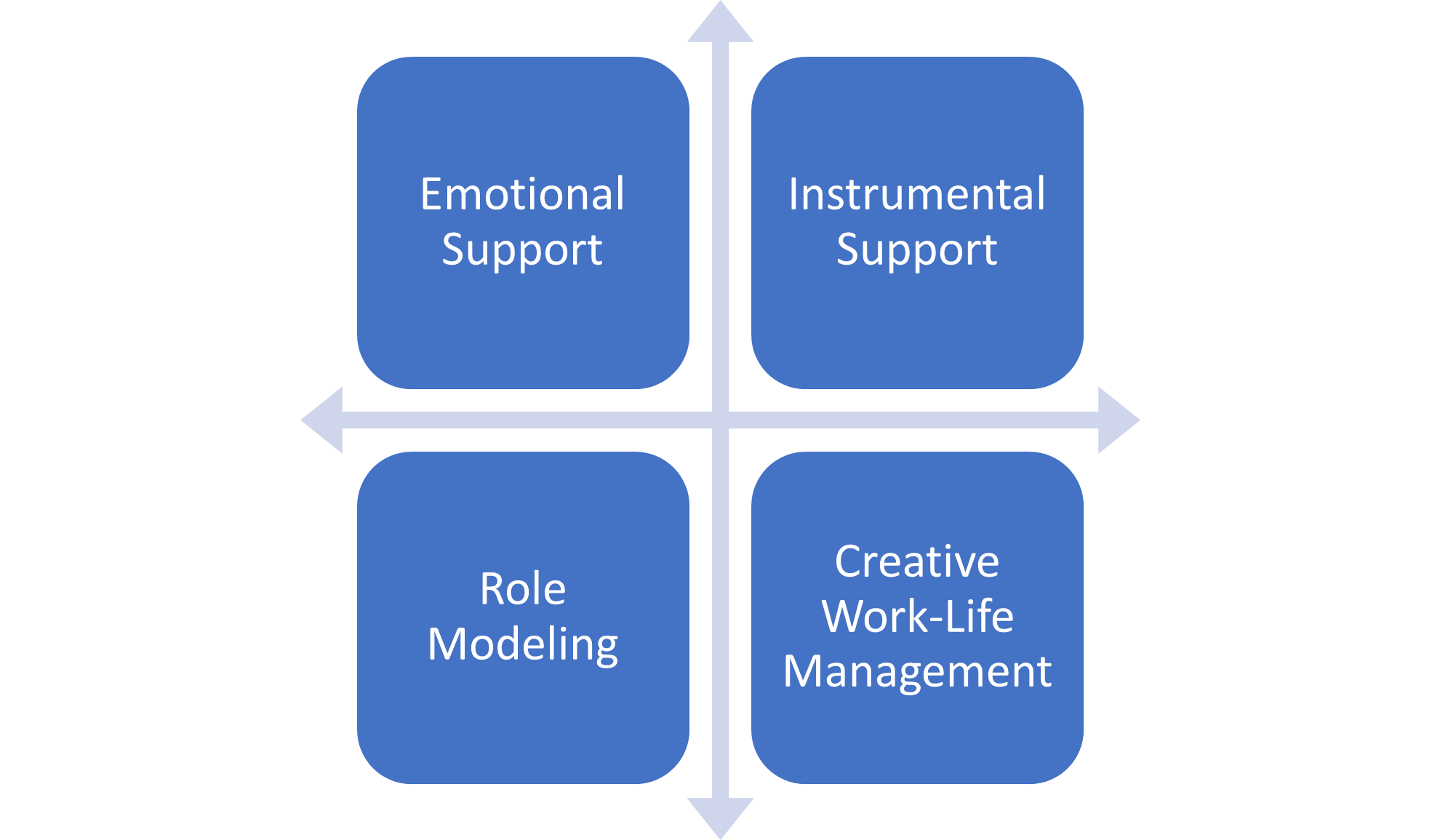Aging Workforce and Caregiving Demands impact Public Health
The aging workforce with rising personal health, family, and caregiving demands are the defining work-life and public health issues of the 21st century (Kossek et al., 2019). The failure to respond to employees’ growing work-life/family needs harms employees’ health, reduces productivity, and increases turnover (Hammer et al., 2011).
Many Employees Lack Access to Formal Work-Family-Life Support Policies
A barrier to addressing work-life/family demands is that most employees work for smaller and medium-sized firms that do not have formal work-life policies, leaving most work-life/family flexibility practices including family and sick leave to be influenced by direct supervisors (Kossek & Lautsch, 2018).
Covid -19 has Increased Work-Life Inequality in the Workforce
The COVID-19 pandemic has only exacerbated work life inequality between workers jobs that require face to face front line work and those that can be done by teleworking as well as by gender and race (Kossek & Lee, 2020).
Workplace is a Key Place to Intervene to Reduce Work-Family-Life Stress
To address this critical gap, this study is based on an occupational health science Total Worker Health approach (NIOSH, 2016), which assumes that the workplace is a key social determinant of work-life stress and aging workers’ abilities to jointly manage their job, personal health, and caregiving demands.
Supervisors’ Work-Family Support Matters
As supervisors are gatekeepers to implementing work-life policies, workplace interventions that train supervisors to have the knowledge, skills and motivation to support employees’ family, personal health, and caregiving needs is an effective way to foster societal health and well-being.
Workplace Interventions Are Needed
Lower- cost scalable workplace interventions are needed to increase leaders’ skills in supporting employees abilities in to access flexibility and use available paid sick and family leave policies. The latter often remain under-utilized or face implementation challenges.
The results of the project will advance the knowledge in occupational health, public health, family supportive supervision, and the workplace intervention fields.
Aim 1: Develop Family Supportive Supervisor Training (FSST) intervention implementation supports to enhance employer usability/adoption.
Aim 2. Develop an eLearning management system to enhance supervisor user experiences, feedback, and delivery processes to motivate behavior change and enhance change sustainability.
Aim 3: Develop the Leaders and Leaves: Supervisor Support for Family and Sick Leave Module to augment the core FSST program focusing on 4 evidence based family supportive behaviors:
 ©Work Life Help, 2015; L. B. Hammer, & E. E. Kossek et al. Multiple studies
©Work Life Help, 2015; L. B. Hammer, & E. E. Kossek et al. Multiple studies
Aim 4: Field test and evaluate the enhanced FSST 2.0 in a Randomized Clinical Trial for employer adoption readiness.







This study is funded by the NIH (National Institute of Health Grant #2R42AG060347-02A1) through the STTR program and approved by Purdue University’s IRB Institutional Research Board (2020-1687.)